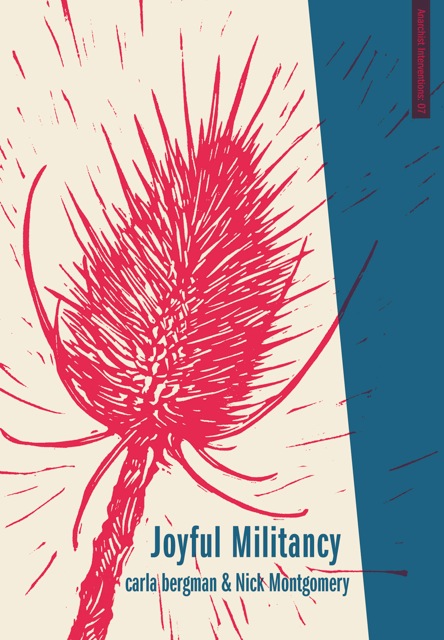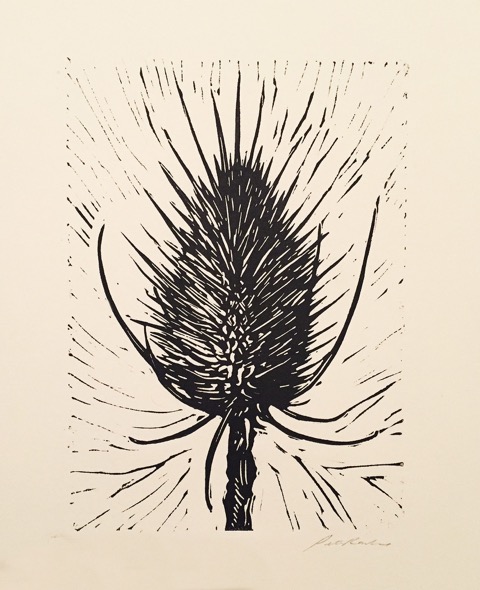
Why do radical movements and spaces sometimes feel laden with fear, anxiety, suspicion, self-righteousness and competition? The authors call this phenomenon rigid radicalism: congealed and toxic ways of relating that have seeped into radical movements, posing as the ‘correct’ way of being radical. In conversation with organizers and intellectuals from a wide variety of currents, the authors explore how rigid radicalism smuggles itself into radical spaces, and how it is being undone. Rather than proposing ready-made solutions, the authors amplify the questions that are already being asked among movements. Fusing together movement-based perspectives and contemporary affect theory, they trace emergent forms of trust, care and responsibility in a wide variety of radical currents today, including indigenous resurgence, anarchism, transformative justice, and youth liberation. Joyful Militancy foregrounds forms of life in the cracks of Empire, revealing the ways that fierceness, tenderness, curiosity, and commitment can be intertwined.
One of our basic premises is that transformative potentials are always already present and emergent. Not only can things be otherwise; they already are, and it is a matter of tuning, tending, activating, connecting, and defending these processes of change that are already in the making. People are always enacting alternatives to the dominant order of things, however small, and there are always new connections and potentials to explore. We see this kind of sensibility happening in currents of feminism, queer theory, Black liberation, Indigenous resurgence, youth liberation, anarchism, autonomism, and radical ecology, among others, and we seek to affirm these movements and practices throughout the book.
“This wonderful book, infused and informed by activist experience, emphasizes the importance of the full range of political affects. Anger and rage rightly, inevitably drive militants, the authors argue, but we must also discover joy and friendship in struggle, which are our highest rewards. The book provides not only an antidote for anyone who has suffered the pitfalls of political activism but also a guide to a fulfilling militant life.”
—Michael Hardt, co-author of Empire, and Assembly
Joyful Militancy features a foreword by Hari Alluri and interviews with Silvia Federici, adrienne maree brown, Marina Sitrin, Gustavo Esteva, Walidah Imarisha, Glen Coulthard, Richard Day, and others. It is the seventh title in the IAS’s Anarchist Interventions book series. Art by Pete Railand and cover and design by Josh MacPhee of Justseeds Artists’ Cooperative
Intro to Joyful Militancy
by Nick Montgomery and carla bergman

There are no new ideas. There are only new ways of making them felt.
—Audre Lorde
People who talk about revolution and class struggle without referring explicitly to everyday life, without understanding what is subversive about love and what is positive in the refusal of constraints—such people have a corpse in their mouth.
—Raoul Vaneigem
Do not think that one has to be sad in order to be a militant, even though the thing one is fighting is abominable.
—Michel Foucault
I
This book is an attempt to amplify some quiet conversations that have been happening for a long time, about the connections between resisting and thriving, about how we relate to each other in radical movements today, and about some of the barriers to collective transformation.
There is something that circulates in many radical movements and spaces, draining away their transformative potential. Anyone who has frequented these spaces has felt it. Many (including us) have actively participated in it, spread it, and been hurt by it. It nurtures rigidity, mistrust, and anxiety precisely where we are supposed to feel most alive. It compels us to search ourselves and others ruthlessly for flaws and inconsistencies. It crushes experimentation and curiosity. It is hostile to difference, complexity, and nuance. Or it is the most complex, the most nuanced, and everyone else is simplistic and stupid. Radicalism becomes an ideal and everyone becomes deficient in comparison.
The anxious posturing, the vigilant search for mistakes and limitations, the hostility that crushes a hesitant new idea, the way that critique becomes a reflex, the sense that things are urgent yet pointless, the circulation of the latest article tearing apart bad habits and behaviors, the way shaming others becomes comfortable, the ceaseless generation of necessities and duties, the sense of feeling guilty about one’s own fear and loneliness, the clash of political views that requires a winner and a loser, the performance of anti-oppressive language, the way that some stare at the floor or look at the door. We know these tendencies, intimately. We have seen them circulating, and felt them pass through us.
When we began talking with friends about this, there were immediate head nods, and sometimes excited eruptions—“YES! Finally someone is going to talk about this publicly!” No one knew exactly what it was or where it came from, but many knew exactly what we were talking about. Like us, they had felt it and participated in it. They had discussed it quietly and carefully with people they trusted. But it was hard to unpack, for a whole bunch of reasons. To complain or criticize it came with the risk of being attacked, shamed, or cast out. This phenomenon is difficult to talk about because it presents itself as the most radical, the most anti-oppressive, the most militant. It shape-shifts and multiplies itself: sometimes it appears as one rigid line, at other times as a proliferation of positions, arrayed against each other. How is it that explicitly radical, anti-oppressive, or anti-authoritarian spaces—the places where people should feel most alive and powerful—can sometimes feel cold, stifling, and rigid? What contributes to a climate in which one is never radical enough, where we have to continually prove our radicalness to others? What makes insecurity, distrust, anxiety, guilt, and shame so pervasive? Where does all this come from? What is this thing? Is it one thing, or many? What activates it, stokes it, and how can it be warded off?
We are not the first to try to get ahold of this phenomenon. It has gone by many names—sad militancy, grumpywarriorcool, manarchism, puritanism—each of which emphasizes different elements and sources. In this book, we call it rigid radicalism. Our research and experience lead us to think that its origins are as diverse as the phenomenon itself. Some say rigid radicalism comes from the way heteropatriarchy poisons intimacy with trauma and violence, while separating politics from everyday life. Others point to origins in the narcissistic and guilt-ridden individualism nurtured by whiteness. Or it is the way schooling replaces creativity and curiosity with conformity and evaluation. Or the humiliation of a life organized by capitalism, in which we are all pitted in petty competitions with each other. Or the way cynicism evolves from attempts to avoid pain and failure. Or it is identity politics fused with neoliberalism. And the terror and anxiety of a world in crisis. And the weakening of movements and a decline in militancy. Or it is the existence of radical milieus as such. And the deep insecurity nurtured by social media and its injunction to public performance. Or it is morality, or ideology, or the Left, or the Maoists, or the nihilists, or the moralists, or the ghost of Lenin. Probably there is some truth to all of these: it is definitely a tangled web.
It is important to say, from the outset, that we do not think the problem is simply anger, conflict, or difference. Whenever people name and challenge oppression and violence, there are almost always reactionaries telling them they are doing it wrong, that they need to be polite, nice, reasonable, peaceful, or patient. We want nothing to do with attempts to regulate resistance.
For this reason, we do not believe rigid radicalism can be countered by inventing a new set of norms for how to behave, or setting out a new ideal of what radicalism should be. There can be no instructions. This would just create a new ideal to measure ourselves against. It would just add to a long list of shoulds, dos, and don’ts that reactivates the problem. We hope to help undo tendencies towards regulation and policing, rather than playing into them.
Maybe we are stoking rigid radicalism right now, in writing about it. Searching out its roots and inner workings can recreate a stifling atmosphere where we feel like we are stuck, always lacking, always messing up, with no escape. Pointing to shame, rigidity, guilt, competition, or anxiety does not make them go away, and might make things worse. It is not a question of revealing the fact that we don’t treat each other well sometimes, or that movements can turn in on themselves; we know this already. These tendencies are a public secret: widely known, but difficult to talk about. Tracing origins might not tell us much about what to do here and now. It is not about a few bad apples, or a few bad behaviors. For us at least, it cannot be reduced to those people over there, because we feel it arise in ourselves as well. There is no way to purify our movements of these tendencies, because the desire for purity is part of the problem.

So our project is not about being against rigid radicalism. We have become convinced that rigid radicalism cannot be countered by critique alone. Our critique and interrogation are a way of asking: how can we be otherwise? What makes it possible to activate something different? How to protect the something different once it gains traction? How to share experiences of places and spaces where something different is already taking place—where people feel more alive and capable?
The first step, for us, has been to affirm that we are already otherwise: we all have parts of ourselves that are drawn towards other ways of being. Everyone has glimmers, at least, of the ways that fierceness can be intertwined with kindness, and curiosity with transformation. Every space is a complex ecology of different tendencies. Rigid radicalism is always only one tendency among others. There are—and always have been—many places and spaces where alternatives are in full bloom. Beyond merely diagnosing or combating rigid radicalism, we seek to affirm the multiplicity of ways that spaces can be otherwise.
Read the whole Introduction here.
Sign up to be notified by AK Press when Joyful Militancy is available.
Go here for updates about Joyful Militancy and other related resources.
